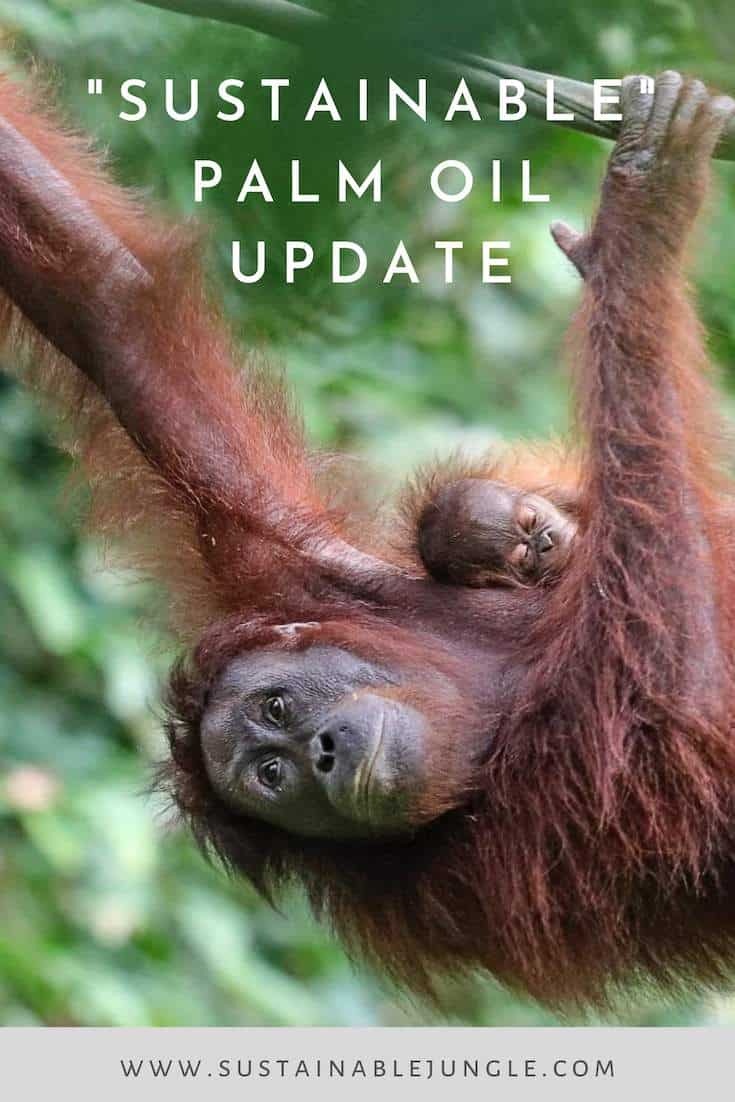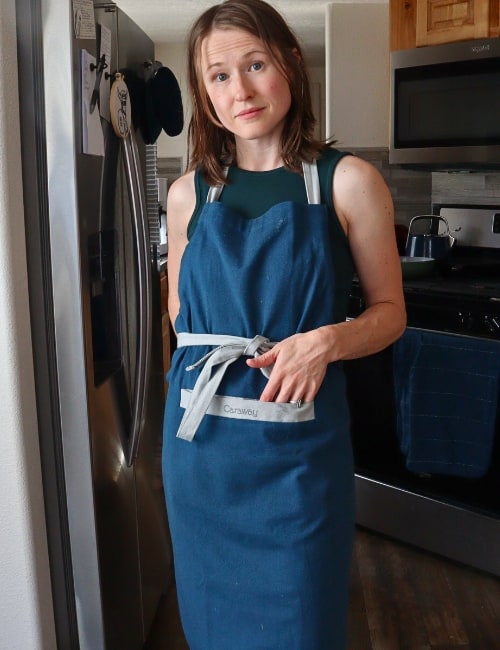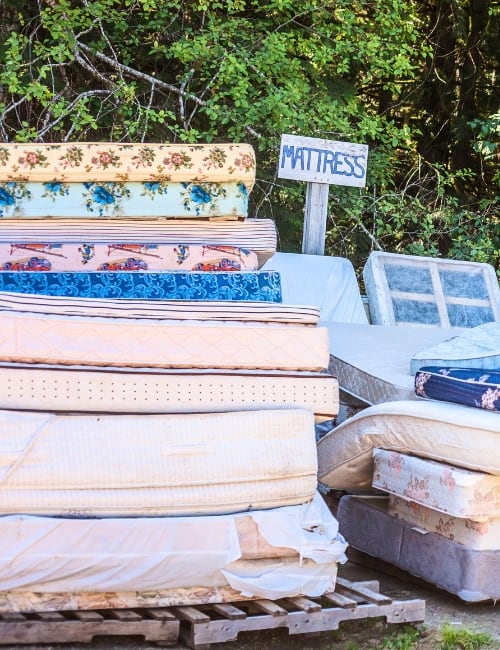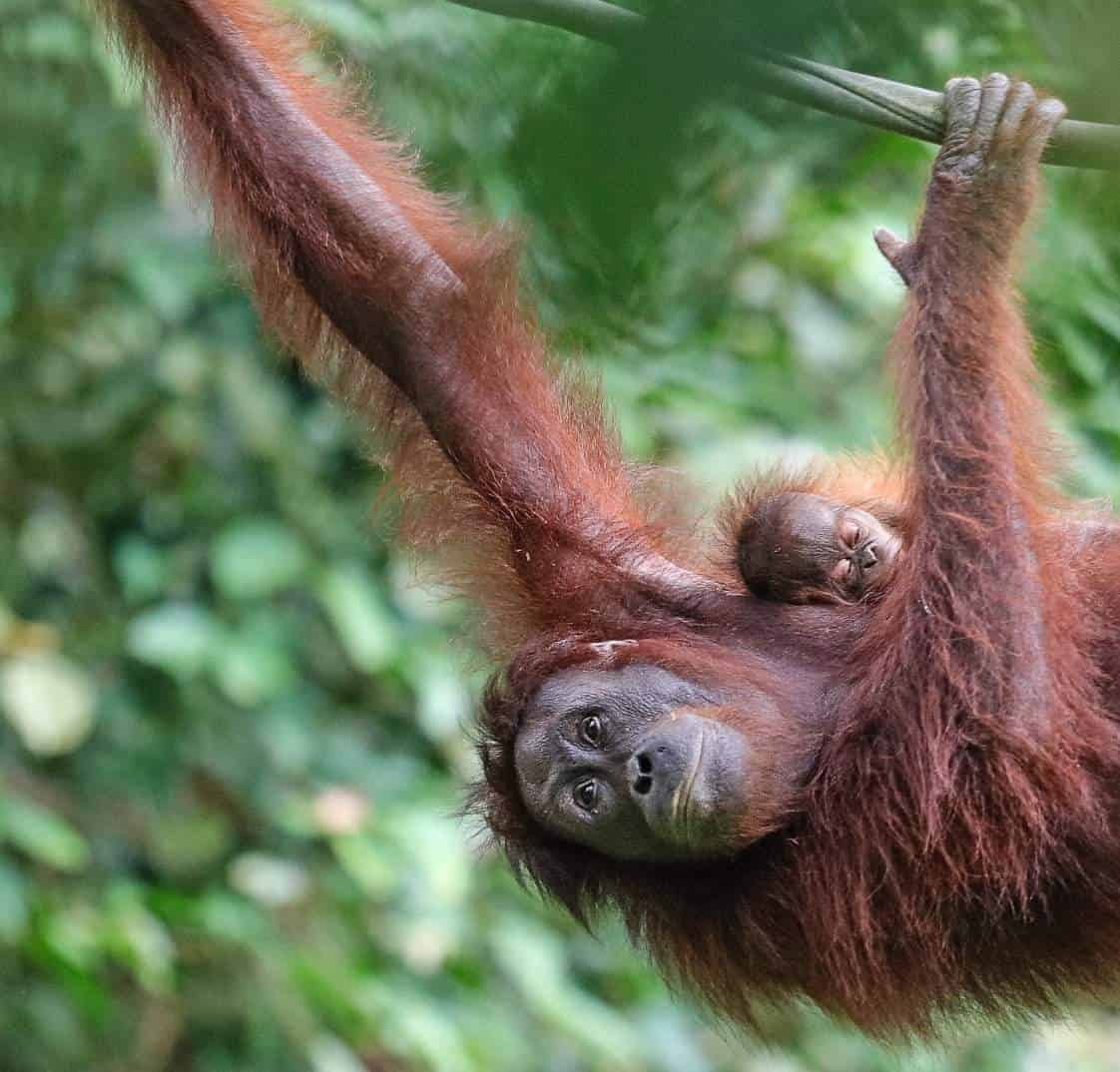
“Sustainable” Palm Oil: Have We Found Ways To Do Palm Oil Better Yet?
A couple years ago, we wrote about sustainable palm oil and why you should buy palm oil free.
Since then, there’s been talk of change as pundits, academics, industry experts and stakeholders alike criticize the palm oil free movement, but the palm oil story has always been messy.
With demand still on the rise, our rainforests are disappearing rapidly. So we’re going to get straight to the big question: have we found ways to do palm oil better yet?
The answer isn’t simple, but there have been some big steps forward.
WHAT’S THE BIG DEAL ABOUT PALM OIL?
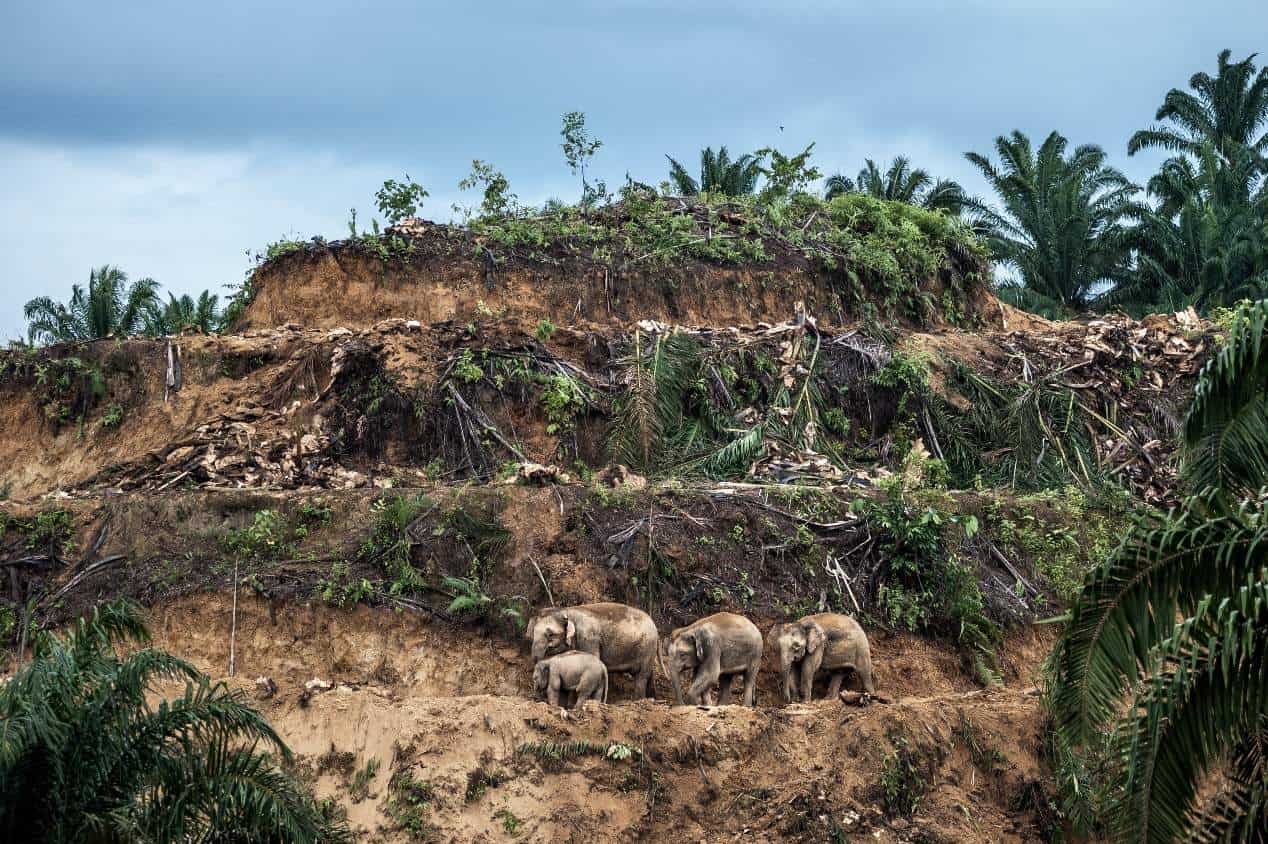
If you’re new to the palm oil debate, here’s the good, the bad and the ugly.
Palm oil is the most versatile (and profitable) vegetable oil on the market. It’s in everything from lipstick to instant noodles. With over 200 names for palm oil, you probably don’t know you’re buying something that contains it.
The production of palm oil has uplifted countless communities economically and provides global food security. But the positives of palm oil have a dark side. The industry is rife with labor abuses, shady land grabs and illegal deforestation.
The industry boom has led to the rapid deforestation of tropical rainforests. The habitat loss from palm oil expansion is detrimental for 193 endangered and vulnerable species.
The peatlands these forests grow on are rich in carbon, and when the forests are burned for plantations, that carbon is released. As a result, the palm oil industry has an enormous carbon footprint.
The truth is that palm oil isn’t going anywhere, and it has a huge impact on our planet. We should all be talking about it.
CHANGES WITH RSPO
We’ve been talking about the sustainability of palm oil for a while. A long while.
The Roundtable for Sustainable Palm Oil was formed back in 2004 to set standards for the industry. Nearly fifteen years later, researchers revealed that there isn’t a big difference between the RSPO certified plantations and non-certified plantations.
So if the RSPO exists, why is sustainable palm oil not happening?
Many researchers and critics blame vague language and lax punishments for violations. The RSPO is all bark and no bite.
But as 2018 came to a close, the RSPO decided to make some big changes. Their new standards completely forbid deforestation as well as the disturbance of peatland and carbon rich areas. Great news, right?
Sort of.
Activists are rightfully skeptical and so are we. Even with great standards of sustainability in place, there still isn’t enough oversight, which means enforcement is lacking.
PALM OIL IS STILL BOOMING
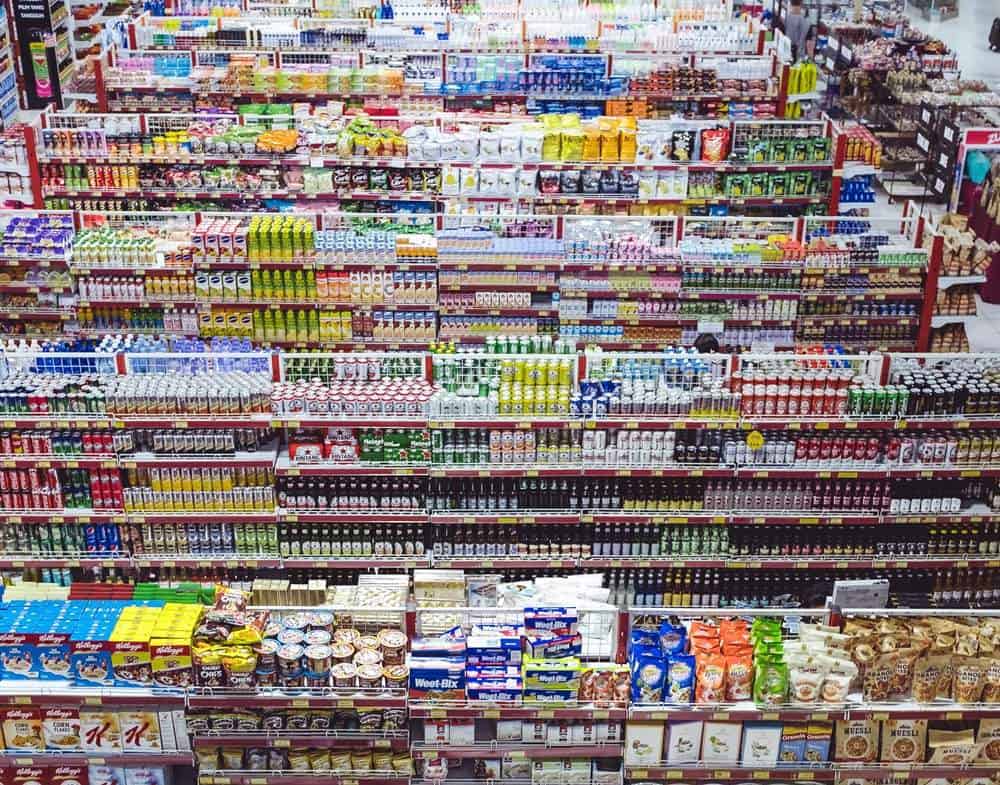
It doesn’t look like deforestation is slowing down. It’s just getting shadier, so to speak.
At about the same time RSPO announced their new policies, journalist Abrahm Lustgarten dug deep into the palm oil industry in Indonesia. It turns out that even protected land isn’t safe from the palm oil industry.
Companies simply hide behind subsidiaries to keep illegal activity from being attached to their names. As a result, rainforest continues to disappear by the minute.
Despite growing awareness of these issues, the demand for palm oil is extremely high. In this article, journalist Paul Tullis writes, “Today, 3 billion people in 150 countries use products containing palm oil. Globally, we each consume an average of 8 kg of palm oil a year.”
We did the math. That’s twenty-four billion kilograms of palm oil being consumed annually.
Twenty-four. Billion.
OIL PALMS RETURN TO THEIR ROOTS
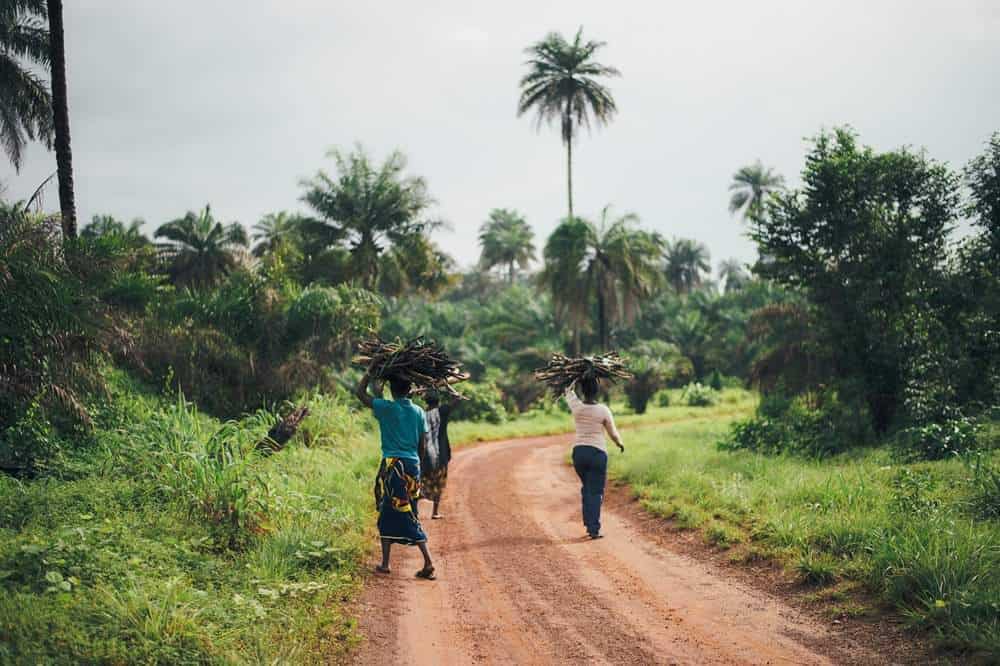
Palm oil is lucrative and has a reputation for uplifting communities economically. Now, African countries like Ghana and Gabon want in.
Oil palms are actually native to West Africa, including Ghana and neighboring regions. It makes sense to cultivate them there. Still, it requires clearing land, and they don’t want to make the same mistakes as Southeast Asia.
With that in mind, Gabon is working on a national land-use plan, and Ghana is one of seven African countries to sign a declaration focused on ensuring African palm oil is sustainable and socially conscious.
But it’s quickly becoming clear that they face their own set of challenges. RSPO encourages companies to write up contracts that result in land grabs so they can set aside land for protection. As a result, communities are losing more land than will be used for production to large companies.
It’s simply too early to tell how successful bringing palm oil home to its native land will be. We’ll have to keep an eye on these efforts.
SMALLHOLDER FARMS NEED HELP TO BE SUSTAINABLE
With land grabs and labour rights being commonplace, small oil palm farms managed by locals rather than big companies sound amazing, right?
We think so too, but like most things in the palm oil industry, it’s not that simple.
There’s a premium price for palm oil from smallholder farms because their yields are smaller and market access is more difficult for them. The question of sustainability gets even more muddled.
In Indonesia, a quarter of oil palm plantations are managed by smallholder farms. That number is growing. But a sustainable palm oil certification is expensive for these small farmers who have limited resources.
To be sustainable and successful, these smallholder farms need the support of their governments and companies willing to pay a premium price to make their efforts profitable.
And yes, those companies exist. Dr. Bronner’s is a great example.
ACCOUNTABILITY HAS TO COME FROM SOMEWHERE
If it isn’t already apparent, we think the palm oil industry still has a long way to go before it can be called sustainable. Since RSPO and government agencies are struggling to stop deforestation, accountability has to come from somewhere.
In Australia, Zoos Victoria banned Nestlé and Cadbury products from their three zoo locations as part of their #LabelPalmOilAlready campaign.
The reason is simple: neither company could produce proof that their palm oil comes from sustainable sources.
Even though both companies pushed back because they supposedly support sustainable palm oil, Zoos Victoria continues to stand by their decision. It’s a great example of accountability, and we think more organizations and businesses should do the same.
THE E.U. BAN ON BIOFUELS MADE WITH PALM OIL
In 2017, the EU passed a resolution to phase out biofuels containing not only palm oil but any vegetable oil that contributes to deforestation by 2020.
Good news, huh?
Critics argue that this could negatively impact the environment because Malaysia and Indonesia will simply start selling to markets that care less about sustainability.
But we think this resolution is a good thing. It decreases demand for palm oil and takes a strong stance.
If you dig into the resolution, there’s a lot more going on than a simple ban. The resolution outlines advocacy efforts in countries like India and China, information exchanges and minimum sustainability criteria for palm oil in the EU market.
This is exactly the direction we need to be going. Our rainforests are running out of time, and there shouldn’t be any wiggle room on these issues.
USED COFFEE AS AN ALTERNATIVE?

We get it. Palm oil is here to stay.
But that doesn’t mean we should let demand continue to grow.
Critics of palm oil alternatives might tell you that replacing palm oil will lead to more deforestation or that the livelihood of millions of people rests in this industry. But we don’t think it has to be that way.
A promising alternative takes advantage of resources that already exist:
A startup called Revive Eco has discovered a way to extract oils from used coffee grounds. This sustainable alternative to palm oil could be used in makeup, food and pharmaceuticals.
Revive Eco hopes to have the whole process up and running in Glasgow by the summer of 2020. After that, they hope to expand and create franchises around the world.
A BETTER FUTURE FOR EVERYONE
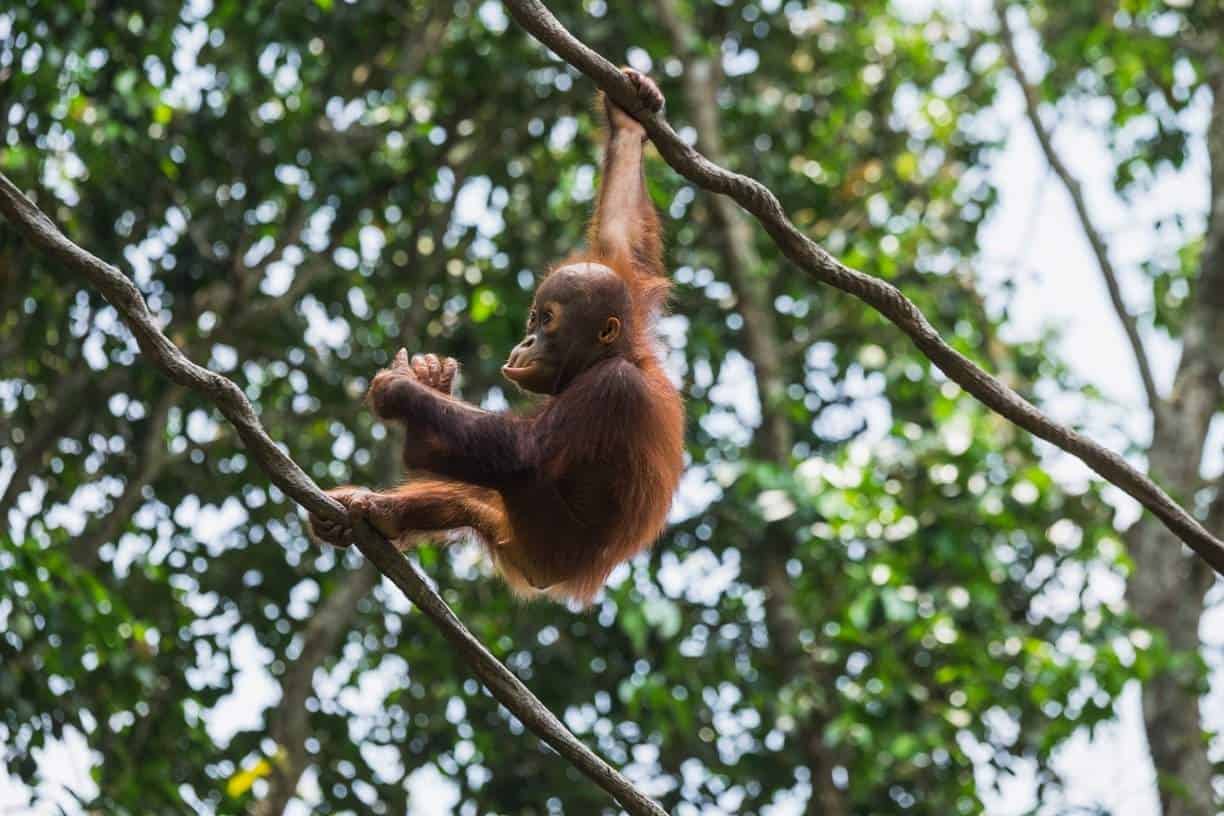
Creating alternatives to palm oil won’t be enough, though. The communities currently relying on palm oil production still need to make money and eat.
Organizations like Rimba Raya pave the way for a more sustainable future in a way that many thought was impossible. In their own words, “Rimba Raya is showing the world it is possible to protect forests, their indigenous wildlife AND improve the livelihoods of local communities at the same time.”
How do they do it?
Rimba Raya focuses on helping local communities develop alternative income streams, protecting indigenous wildlife and education. It’s a massive undertaking. The Rimba Raya reserve is nearly the size of Singapore!
We interviewed Todd Lemons who founded Rimba Raya with Biruté Mary Galdikas. He also founded Veridium Labs, which is using blockchain technology to make carbon credit usage possible.
This is great news for our forests because it finds a way to build in at least some of the costs of conservation, not to mention the current trio of sustainable forestry certification’s reliability is questionable at best.
FINAL THOUGHTS ON SUSTAINABLE PALM OIL
It’s really starting to look like 2019 is a big year for the world of palm oil. A lot of innovation and change is happening right now.
What does that mean for us as consumers? Are we out of the red? Can we buy all the ice cream?
Not yet. Stay strong.
There is still a lack of transparency when it comes to products containing palm oil. Even with an RSPO label, we can’t be confident about where palm oil in any individual product is being sourced. Hopefully, this won’t be the case forever and in the meantime, palm oil free products are increasingly available!
For now, we still believe buying palm oil free products is important. It’s putting pressure on the industry to do better and alleviating some of the demand.
Our rainforests and our whole planet depend on it.
